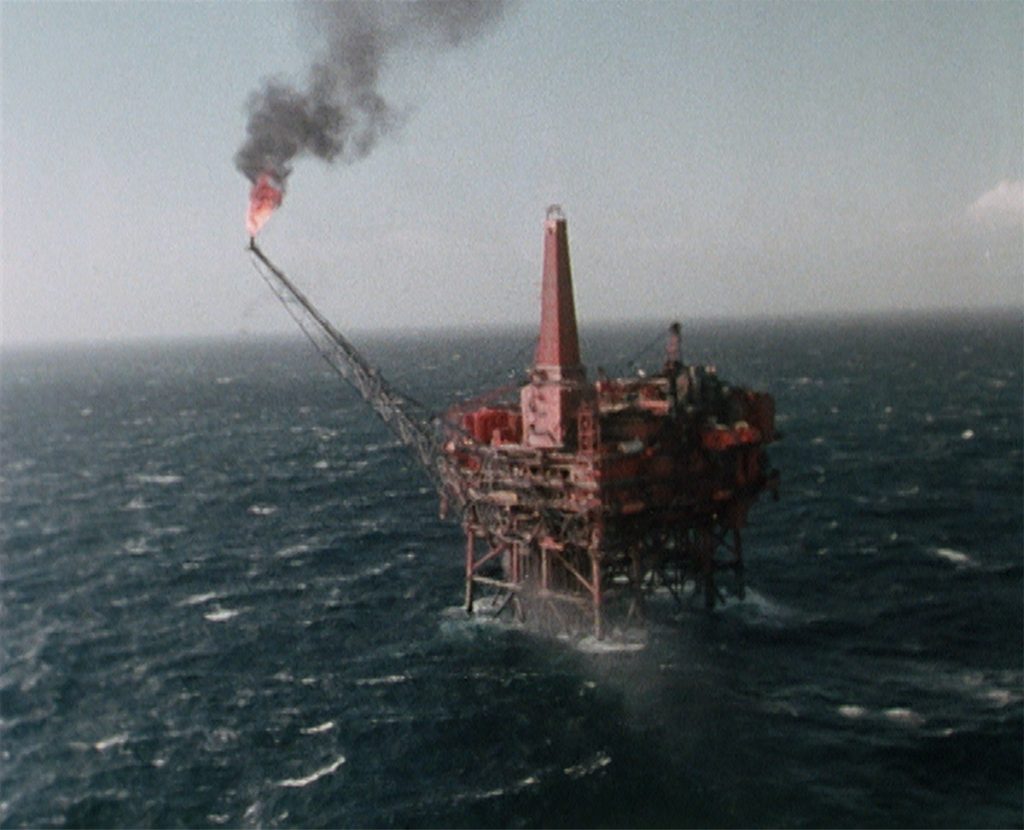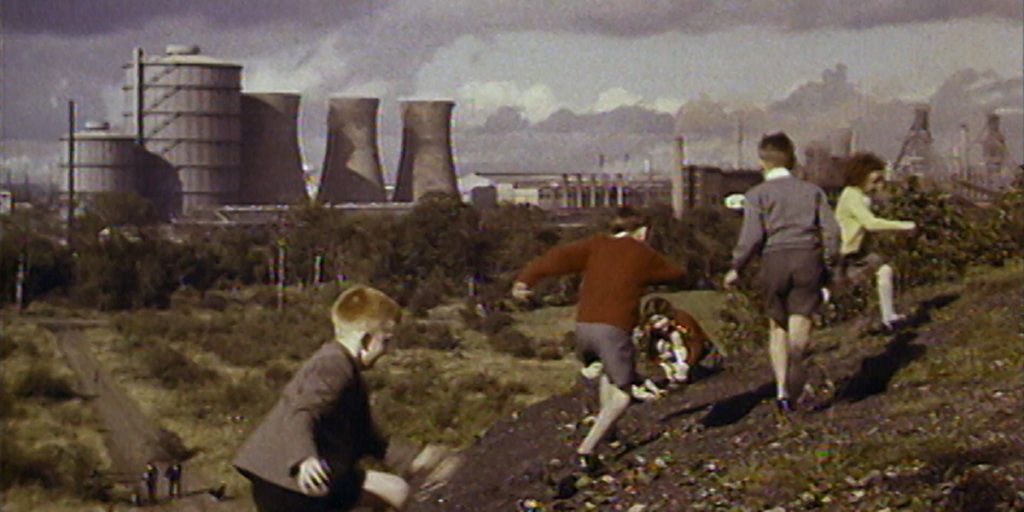Using archival footage, Living Proof: A Climate Story is an interesting yet jumbled look at Scotland’s industrial and environmental impact on the climate crisis.
Emily Munro’s Living Proof: A Climate Story, which will have its world premiere at the Take One Action Film Festival, is an interesting exploration of the history of Scotland’s industry, and the interwoven web of the impact its industrial advancement has had on its landscape. Comprised of a series of archival clips from the National Library of Scotland, it charts the progress of Scotland’s workforce from farming and fishing, to mining, steel making and oil drilling, as well as the increasing need to address the country’s contribution to the ever-growing climate crisis.
As it begins, Living Proof appears to be educational rather than pushing a particular narrative. But as it progresses, it becomes clear that the film is emphasising the reliance Scotland has placed on each individual industrial sector for both enterprise and economic growth: be it the building of dams to provide hydroelectricity in the post-war Highlands, the revelation of machinery in the back-breaking coal mines of Fife, or the speedy mass-production of sheet steel in Motherwell that facilitated global trade. And through clever editing and interspersing of news reels detailing the importance of responsible waste management, the protests around the construction of nuclear power stations and the increasing reliance on oil, it also emphasises the country’s disregard for the environmental ramifications of these particular sectors.
It’s estimated that over 95% of Scotland’s energy in 2020 came from renewable sources. While that may be an admirable statistic, Living Proof aims to emphasise that Scotland’s investment in energy has not always prioritised environmental over economical. Its final few minutes include the impactful line ‘we cannot live on the earth without degrading it’, and state that Scotland has tended to ‘impose our needs of the moment on our surroundings’. The development of hydro-electricity in the Highlands post WWII was an attempt to provide employment for the men returning from service, as well as provide an ever expanding population with an affordable way to modernise their living. The introduction of oil rigs came at a time when Scotland was seeing mass unemployment, and building them brought plenty of jobs to struggling families in the 1970s and 1980s. But it also came at a price.

An optimistic soundbite suggests that oil will become ‘important without being overwhelming’. Rather ironic, considering it’s at the heart of contentious debates over conflicts in the Middle East, the decline of Scotland’s fishing industry, sustainability of energy and the protection of the planet’s waters and aquatic life. Living Proof doesn’t engage or offer any particular stance on these particular issues, but it does present Scotland’s history with oil in a manner that highlights the economic advantages, rather than the environmental disadvantages. And perhaps, subtextually, suggests that the former has always trumped the latter.
Unfortunately, despite a really fascinating central topic, it does feel rather muddled. The lack of contextual information in regards to when each clip originates means that it’s hard to follow the progression at times, and the consistent reliance on archival news reels gets a little repetitive. An overarching narration, be it from talking head interviews or a simple scripted voiceover, and a more obviously chronological structure – perhaps including some more recent footage (see: post-2000s) – might have helped the film be a little more accessible.
But despite its compositional flaws, Living Proof: A Climate Story does tell an important, timely and interesting story. It shows a Scotland that prioritised industrial growth over environmental protection, and highlights the impact the entire country – from the Highlands and Islands to the Central Belt – has had on the climate crisis. Emily Munro has crafted a thorough archival exploration of Scotland’s industrial history and shaped it into message on the subject of climate change, that perhaps could have been a little more direct in its delivery.
Living Proof: A Climate Story will have its World Premiere at the Take One Action Film Festival, running in Edinburgh and Glasgow cinemas and also online 22-26 September, before heading to Aberdeen (22-24 October) and Inverness (29-31 October)

